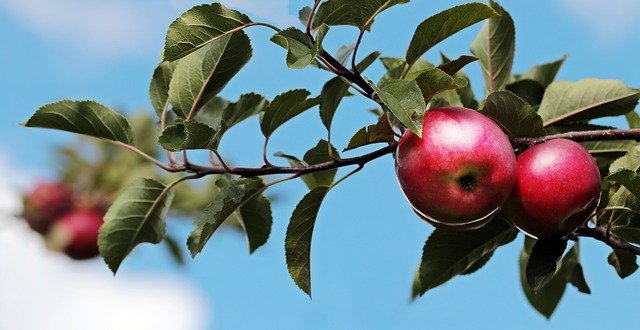The power of accurately defining problems can be transformative in shaping the direction of research to maximise benefit to society, economy and the environment. We share one experience here that resulted in new, engaged, research.
In a Research Staff Conference in 2015, we were invited to speak about how to maximise impact from research. In the discussion, Simon used experience from his research to outline a scenario which demonstrated the importance of understanding the problem practitioners experience ‘on the ground’.

In the example, Simon described how their original research hypothesis for a strand of pollinator research hinged on increasing the yield of apples in commercial orchards. Full of pride with this hypothesis and experimental approach it was drafted up into a BBSRC responsive mode research grant application.
However, before submitting, the team took their proposal to Avalon and Worldwide Fruit Ltd who supply ~70% of the UK top-fruit market to show how innovative the approach was. The growers thought for a moment and then challenged the premise of the research and said: “no we don’t want MORE apples, we want BETTER apples”.
The growers explained their core problem was not quantity of apples, but instead producing apples that met the ‘class 1’ grade criteria as required by supermarkets. The problem that the partners were experiencing was not “our orchards cannot produce enough apples” it was “the supermarkets have exceptionally high-quality thresholds, and our business model is dependent on trying to meet them”.
Furnished with this crucial context, the research was adjusted and a new ‘problem statement’ was formulated between the researchers and the growers, ensuring that pollinator management strategies would match the growers’ needs. They then co-designed the experiment, implemented and evaluated it together which then led to new problem statements and new, engaged, research.
The importance of this exchange is not to be understated. Working with the wrong problem statement would not have benefitted commercial growers and it could (if funded) have taken five years to find this out, wasting government investment. The original premise would no doubt have produced rigorous research insight but its relevance, importance, influence and subsequent adoption by the horticulture industry would have been significantly impaired at best, or more likely, irrelevant.
The approach taken by Simon is fundamental to the group’s research process and the insight from growers was incorporated in the BBSRC Sustainable Management of Orchard Pollination Services which considered key metrics of fruit quality and was supported by the industry. The group’s work on highly complex and interconnected problem statements associated with declining biodiversity at a UN level culminated in the IPBES report which will ensure better biodiversity long into the future, as well as better apples.
The concept of problem statement, the negatively framed challenges (too much, too little, poor quality…) that policy makers, practitioners and the public experience, is integral to the University of Reading’s approach to maximising impact in many scenarios. Anthony’s team has adapted this useful tool from the Emerald Publishing’s workbook on impact literacy in conversations with early career researchers in the Prosperity and Resilience theme, worked with Research Services colleagues supporting successful NERC Fellowship applications, delivered workshops with Taylor & Francis on how it can be applied to the Arts and Humanities, and the concept has been woven into the 72 Impact Case Studies submitted to REF2021 covering the breadth of the university’s research.
This powerful concept can help shape the direction of our research, so it achieves high quality and powerful knowledge alongside impact that benefits the world we live in. The impact team can work through problem statements with researchers and partners through workshops and one-to-one support. Please contact Tracey Duncombe (Agriculture, Health and Food Theme), Claire Kennan (Heritage and Creativity), Lisa Lazareck-Asunta (Environment), Ruth Pugh (Prosperity and Resilience) or Anthony Atkin.
Simon Potts is Professor in the School of Agriculture, Policy and Development and Co-Chaired the IPBES assessment of ‘Pollinators, Pollination and Food Production’.
Anthony Atkin is the Senior Impact Development Manager and leads the University of Reading Impact Team.
